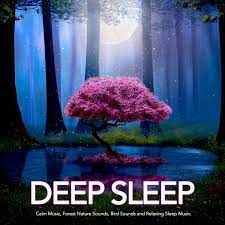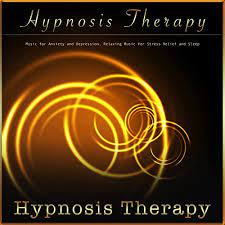Music for Sleeping: The Power of Relaxing Sleep Music
In our fast-paced and constantly connected world, getting a good night’s sleep has become more elusive than ever. The stresses of daily life, the never-ending to-do lists, and the constant influx of information can make it difficult for our minds to unwind when it’s time to rest. This is where the power of relaxing sleep music comes in.
Sleep music, specifically designed to promote relaxation and induce better sleep, has gained popularity in recent years. Its soothing melodies, gentle rhythms, and calming tones create a peaceful ambiance that helps the mind and body relax, letting go of tension and stress accumulated throughout the day.
One of the key benefits of sleep music is its ability to slow down our brainwaves. When we are awake and engaged in daily activities, our brain operates at higher frequencies known as beta waves. As we prepare for sleep, our brainwaves naturally transition into slower frequencies such as alpha and theta waves. Relaxing sleep music aids this transition by synchronizing our brainwaves with its slow tempo, guiding us into a state of deep relaxation.
The melodic patterns and harmonious compositions found in sleep music also have a profound impact on our emotions. It has been scientifically proven that certain types of music can stimulate the release of endorphins – the feel-good hormones – in our brains. By listening to relaxing sleep music before bed, we can create a positive emotional state that eases anxiety and promotes a sense of calmness.
Furthermore, sleep music helps drown out external noises that may disrupt our slumber. Whether it’s traffic sounds outside or noisy neighbors, having a consistent background melody can mask these disturbances and create a serene environment conducive to uninterrupted rest.
It’s important to note that not all types of music are suitable for promoting quality sleep. While upbeat or stimulating genres might be great for daytime productivity or workouts, they are not ideal for bedtime routines. Instead, opt for genres such as classical, ambient, or instrumental music that have a slower tempo and minimal lyrics. These genres are known for their ability to induce relaxation and create a tranquil atmosphere.
In addition to sleep music, incorporating other sleep-promoting practices into your bedtime routine can enhance the quality of your rest. Establishing a consistent sleep schedule, creating a comfortable sleep environment, and practicing relaxation techniques like deep breathing or meditation can all work in harmony with relaxing sleep music to optimize your slumber.
So the next time you find yourself struggling to unwind before bed or battling with restless nights, consider introducing the power of relaxing sleep music into your nightly routine. Allow its melodic embrace to guide you into a state of tranquility and experience the profound benefits of deep, rejuvenating sleep. Sweet dreams await!
What Type of Music is Best for Sleeping and Relaxation?
Are There Any Health Benefits of Listening to Music While Sleeping?
3. Music or White Noise: Which is Better for
- What type of music is best for sleeping and relaxation?
- Does listening to music while sleeping have any health benefits?
- Is it better to listen to music or white noise when trying to sleep?
- How long should I listen to relaxing sleep music before going to bed?
- Are there any specific songs that are good for helping you fall asleep?
- What instruments are used in relaxing sleep music?
- Should I use headphones or speakers when playing relaxing sleep music?
- Is it better to listen to instrumental or vocal relaxing sleep music before going to bed?
What type of music is best for sleeping and relaxation?
When it comes to choosing the best type of music for sleeping and relaxation, it’s important to consider genres that have a calming and soothing effect on the mind and body. Here are a few popular genres that are known to promote relaxation:
- Classical Music: The serene melodies and gentle rhythms of classical music, such as compositions by Mozart, Bach, or Debussy, can help slow down your heart rate and induce a state of relaxation.
- Ambient Music: Ambient music is characterized by its atmospheric soundscapes and minimalistic approach. It often incorporates soft synthesizers, nature sounds, and long sustained tones that create a tranquil environment perfect for unwinding.
- Instrumental Music: Instrumental music without lyrics allows you to focus solely on the melodies and harmonies without any distractions. Genres like instrumental acoustic guitar, piano, or orchestral arrangements can be incredibly calming.
- Nature Sounds: The sounds of nature, such as raindrops falling, ocean waves crashing, or birds chirping, have a soothing effect on our minds. Listening to recordings of these natural sounds can create a peaceful ambiance conducive to sleep.
- Meditation Music: Specifically designed for relaxation and meditation purposes, this genre often incorporates repetitive patterns, gentle rhythms, and ambient textures that help calm the mind and induce deep relaxation.
Ultimately, the best type of music for sleeping and relaxation varies from person to person. It’s essential to experiment with different genres and styles to find what works best for you individually. Pay attention to how your body responds to different types of music and choose the one that helps you unwind and drift off into a restful slumber.
Does listening to music while sleeping have any health benefits?
Listening to music while sleeping can indeed have several health benefits. Here are a few ways in which it can positively impact your well-being:
- Stress reduction: Music has the power to evoke emotions and create a sense of calmness. By listening to relaxing music before sleep, you can help reduce stress levels and promote relaxation, making it easier to fall asleep and experience a more restful night.
- Improved sleep quality: Sleep music can help regulate your heart rate, breathing patterns, and brainwaves, leading to improved sleep quality. It creates a soothing environment that encourages deep sleep and reduces the likelihood of waking up during the night.
- Anxiety relief: Many individuals struggle with anxiety or racing thoughts when trying to fall asleep. By providing a distraction and focusing the mind on calming melodies, sleep music can help alleviate anxiety symptoms and promote a more peaceful state of mind.
- Increased melatonin production: Melatonin is a hormone that regulates our sleep-wake cycle. Research suggests that listening to relaxing music before bed may stimulate the production of melatonin, helping to regulate our natural sleep patterns.
- Pain management: For those dealing with chronic pain or discomfort, music can serve as a form of therapy. It has been found to distract from pain signals and reduce perceived levels of pain, allowing for better sleep quality and overall well-being.
- Enhanced mood: Music has the ability to uplift our spirits and improve mood by triggering the release of endorphins – our brain’s feel-good chemicals. By listening to pleasant music before sleep, you can create a positive emotional state that carries over into your rest.
It’s important to note that individual preferences for music vary greatly, so finding the right type of sleep music that resonates with you is key. Experiment with different genres and styles until you discover what promotes relaxation and enhances your sleep experience.
However, it’s worth mentioning that if you find yourself relying solely on music to fall asleep every night, it may be beneficial to develop other healthy sleep habits as well, such as maintaining a consistent sleep schedule and creating a conducive sleep environment.
In summary, listening to music while sleeping can have numerous health benefits, including stress reduction, improved sleep quality, anxiety relief, increased melatonin production, pain management, and enhanced mood. Incorporating relaxing music into your bedtime routine can contribute to a more restful and rejuvenating night’s sleep.
Is it better to listen to music or white noise when trying to sleep?
The choice between music and white noise when trying to sleep ultimately depends on personal preference and what helps you relax. Both options have their own benefits and can be effective in promoting better sleep.
Music: Listening to calming and soothing music before bed can help create a peaceful ambiance, ease anxiety, and induce relaxation. Music with a slow tempo, gentle melodies, and minimal lyrics is generally recommended for sleep purposes. Classical music, ambient sounds, or instrumental tracks are popular choices as they often have a calming effect on the mind and body. However, it’s important to select music that you find personally enjoyable and that doesn’t stimulate your thoughts or emotions too much.
White Noise: White noise refers to a consistent sound that covers up other noises in the environment. It creates a steady background sound that can help mask disruptive noises such as traffic or neighbors. White noise machines or apps generate sounds like rainfall, ocean waves, or static hissing to provide a constant auditory backdrop. The purpose of white noise is to create a consistent sound environment that helps drown out distractions and promotes relaxation.
Ultimately, the choice between music and white noise depends on what works best for you individually. Some people find comfort in the familiar melodies of their favorite songs, while others prefer the steady hum of white noise to block out external disturbances. Experiment with both options to determine which one helps you unwind more effectively and promotes better sleep quality for you personally.
It’s worth noting that using headphones or keeping the volume at a low level is recommended so as not to disrupt your sleep later in the night or cause discomfort while lying down. Additionally, establishing other healthy sleep habits like maintaining a regular sleep schedule, creating a comfortable sleep environment, and practicing relaxation techniques can also contribute significantly to improving your overall sleep quality.
How long should I listen to relaxing sleep music before going to bed?
The optimal duration for listening to relaxing sleep music before going to bed can vary from person to person. However, a general recommendation is to listen to sleep music for at least 30 minutes before you plan to sleep.
This timeframe allows your mind and body to gradually relax and adjust to the calming effects of the music. It also provides enough time for you to disconnect from any stimulating activities or screens, allowing your brainwaves to slow down and prepare for sleep.
Of course, you can choose to listen to sleep music for a longer period if it helps you unwind further. Some individuals find that listening to sleep music for an hour or more enhances their relaxation and promotes a deeper state of restfulness.
Ultimately, it’s essential to listen to your body and determine what works best for you. Experiment with different durations and observe how your mind and body respond. Pay attention to any signs of increased relaxation or drowsiness as indicators of the ideal listening time that suits your needs.
Are there any specific songs that are good for helping you fall asleep?
When it comes to sleep-inducing music, individual preferences can vary. However, there are certain characteristics to look for in songs that can promote relaxation and help you fall asleep. Here are a few examples of songs and genres that are commonly recommended for sleep:
- Classical Music: Composers like Johann Pachelbel (Canon in D), Claude Debussy (Clair de Lune), and Frédéric Chopin (Nocturnes) have created timeless pieces known for their soothing and calming qualities.
- Ambient Music: This genre typically features atmospheric sounds, gentle melodies, and minimalistic compositions that create a serene atmosphere. Artists like Brian Eno, Stars of the Lid, and Max Richter’s “Sleep” are worth exploring.
- Instrumental Music: Instrumental tracks with soft piano, guitar, or flute melodies can be particularly relaxing. Artists like Ludovico Einaudi, Yiruma, and George Winston offer beautiful instrumental compositions perfect for bedtime.
- Nature Sounds: The sounds of rain falling, ocean waves crashing, or a gentle forest breeze can have a tranquilizing effect on the mind. There are numerous albums and playlists available that combine nature sounds with soothing music.
- Binaural Beats: These are specific frequencies played in each ear that create an auditory illusion believed to promote relaxation and deep sleep. Binaural beats tracks can be found on various streaming platforms or specialized apps.
Remember that personal preference plays a significant role in what works best for you when it comes to sleep music. It’s essential to experiment with different songs and genres to find what resonates most with your individual taste and promotes relaxation for you personally.
Additionally, consider creating a playlist or using pre-made sleep playlists available on streaming platforms specifically curated for bedtime or relaxation purposes. These playlists often include a variety of calming songs from different genres to suit various preferences.
Ultimately, the goal is to find music that helps you unwind, clears your mind, and creates a peaceful atmosphere conducive to sleep. Soothing melodies, gentle rhythms, and minimal lyrics are key factors to consider when selecting songs for your sleep routine.
What instruments are used in relaxing sleep music?
Relaxing sleep music encompasses a wide range of genres and styles, each with its own unique instrumentation. However, there are several common instruments that are frequently used to create soothing and calming melodies in sleep music. Here are some of the instruments commonly found in relaxing sleep music:
- Piano: The piano is a popular instrument in sleep music due to its gentle and melodic qualities. Its soft and mellow tones can create a serene atmosphere, inducing a sense of relaxation.
- Guitar: Acoustic guitars, in particular, are often featured in sleep music. Their warm and delicate sound can evoke feelings of tranquility and peace.
- Flute: The flute’s airy and ethereal tones make it an excellent choice for creating a serene ambiance in sleep music. Its soft melodies can transport listeners to a tranquil state of mind.
- Harp: The harp’s delicate plucking sounds produce a soothing effect that is perfect for sleep music. Its gentle arpeggios and cascading notes create a calming atmosphere.
- Violin: The violin’s expressive nature lends itself well to creating emotional depth in sleep music. Its soulful melodies can evoke feelings of relaxation and introspection.
- Cello: With its rich and resonant tones, the cello adds depth and warmth to sleep music compositions. Its low register can create a sense of grounding and serenity.
- Ambient Synthesizers: In addition to acoustic instruments, ambient synthesizers are often used to add atmospheric layers to sleep music compositions. These electronic sounds help create a dreamlike environment that enhances relaxation.
It’s important to note that while these instruments are commonly used in relaxing sleep music, the specific combination or choice of instruments may vary depending on the artist or composer’s style and intention. The goal is always to create an immersive sonic experience that promotes deep relaxation and peaceful slumber.
Should I use headphones or speakers when playing relaxing sleep music?
When it comes to playing relaxing sleep music, whether to use headphones or speakers depends on personal preference and your specific sleep environment.
Using headphones can provide a more immersive and intimate listening experience. They allow you to focus solely on the music without any external distractions. This can be particularly beneficial if you are in a noisy environment or if you share a sleeping space with someone who has different sleep patterns. Headphones also create a sense of privacy, allowing you to fully immerse yourself in the calming melodies without disturbing others.
On the other hand, using speakers can create a more ambient atmosphere throughout the room. Softly playing sleep music through speakers can help create a soothing background sound that fills the space, promoting relaxation and creating a tranquil environment for sleep. This option is especially useful if you prefer not to wear headphones while sleeping or if you find them uncomfortable.
It’s worth noting that when using speakers, it’s important to keep the volume at a low and comfortable level. Loud music may have an opposite effect and hinder your ability to fall asleep or stay asleep throughout the night.
Ultimately, the choice between headphones or speakers depends on what works best for you personally. You may want to experiment with both options and see which one enhances your relaxation and promotes better sleep. Whether it’s through headphones or speakers, the goal is to create an environment that helps you unwind, relax, and drift off into a restful slumber.
Is it better to listen to instrumental or vocal relaxing sleep music before going to bed?
When it comes to choosing between instrumental or vocal relaxing sleep music before bed, it ultimately depends on personal preference. Both options have their own unique benefits and can contribute to a peaceful sleep environment. Here are some considerations to help you make your decision:
Instrumental Sleep Music:
Focus on relaxation: Instrumental music, without lyrics, can create a serene atmosphere that allows the mind to unwind and let go of thoughts or distractions.
Minimize mental stimulation: Without vocals, instrumental music reduces the chance of engaging with the lyrics or getting caught up in the storytelling aspect of the song.
Versatility: Instrumental sleep music spans various genres like classical, ambient, or nature sounds. You can choose the style that resonates most with you and helps you relax.
Vocal Sleep Music:
Emotional connection: Some people find comfort and emotional release through soothing vocals as they connect with the lyrics or the artist’s voice.
Soothing lullabies or guided meditation: Vocal sleep music may include lullabies or guided meditation tracks that specifically aim to induce relaxation and calmness.
Familiarity and nostalgia: Listening to familiar songs or comforting voices can evoke positive emotions, providing a sense of familiarity and ease before sleep.
Ultimately, it is crucial to select music that promotes relaxation and doesn’t stimulate your mind too much before bedtime. Experiment with both instrumental and vocal sleep music to see which type helps you unwind more effectively and enhances your overall sleep experience.
Remember, everyone’s preferences are different, so choose what resonates with you personally. Whether it’s gentle piano melodies, ambient instrumentals, or soothing vocals, finding the right sleep music that aligns with your relaxation needs will contribute to a restful night’s sleep.




